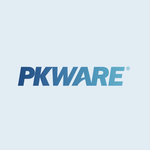Yes, key management software may be accessible from various devices and platforms. This enables you to securely manage and track your keys from any computer, including a desktop, laptop, or mobile device. The program is often cloud-based, allowing you to log in and view your key database from any location with an internet connection. This offers for greater flexibility and convenience while managing your keys on the road.
List of 20 Best Key Management Software
KeyBank Touch - a solution that is reshaping the finance industry. Packed with cutting-edge features and advanced capabilities, this software sets a new standard for optimizing operations and enhancing user satisfaction. Its groundbreaking capabiliti...Read More KeyBank Touch
Smartcrypt is a key management software for complete security. Our comprehensive end-to-end solution boasts features such as key holder management, access controls, encryption, and cyber-security, all conveniently managed from one platform. With adva...Read More Smartcrypt
KeyTrak is a key management software designed to provide businesses with robust security and seamless integration. Our cutting-edge capabilities include asset tracking, monitoring of overdue keys, secure database management, and customizable white/bl...Read More KeyTrak
Key Wizard is a secure key management software designed for businesses. Our all-in-one solution includes master key management, check-in/check-out, key holder management, API integration, and system control. Our software provides businesses with effi...Read More Key Wizard
HashiCorp solution for seamless management of cloud infrastructure. This revolutionary tool offers automated processes, robust security protocols, and unparalleled efficiency, elevating enterprise performance to new heights. Backed by its ability to...Read More HashiCorp
A Cloud-Based Tokenization software, a reliable and secure solution that replaces sensitive payment data with tokens. With this innovative tool, you can reduce PCI compliance scope by up to 90% while enjoying increased payment flexibility and reduced...Read More Cloud-Based Tokenization
Promaster Key Manager, the complete solution for businesses looking for comprehensive key management. Our state-of-the-art software includes features such as access controls, audit tracking, key holder management, and efficient check-in/check-out cap...Read More Promaster Key Manager
SimpleK is a key management solution for businesses on the rise. Our robust platform boasts advanced features such as check-in/check-out, master key management, API integration, and data encryption to safeguard your keys and sensitive information. Wi...Read More SimpleK
KeyWin is a key management software designed for enterprises. With its advanced features such as automatic access controls, whitelisting and blacklisting functionalities, master key management, overdue key tracking, encryption, and an audit trail, Ke...Read More KeyWin
KeyZone is a key management solution designed specifically for small businesses. With state-of-the-art cyber-security features, complete system oversight, API connectivity, streamlined access controls, and easy key holder management, KeyZone provides...Read More KeyZone
Keyzapp is a key management software for businesses. Our state-of-the-art system offers a wide range of features, including audit trails, encryption, lock management, scheduling, data protection, and master key management. With Keyzapp, your keys are...Read More Keyzapp
EJBCA is a highly acclaimed PKI software solution designed to protect your digital communications and data. With its wide range of features and advanced certificate management capabilities, EJBCA is the perfect choice for organizations looking for a...Read More EJBCA
Key Organizer - the perfect solution for efficient key management for small businesses. Elevate the security of your assets with advanced features like cyber-security, access controls, and encryption. Keep a check on overdue keys, track access, and e...Read More Key Organizer
WebTMA is a asset and facility management software that streamlines maintenance processes, enhances equipment reliability, and reduces disruptions. It is a complete solution that includes vital features such as preventive maintenance, work order mana...Read More WebTMA
TechnoRishi DRM, a state-of-the-art Digital Register Management System designed for businesses of all sizes. Access all your Registers seamlessly from any browser, without the need for manual installations or client software. With centralized visibil...Read More TechnoRishi DRM
Virtru is a key management system that provides top-notch security for enterprises and small businesses. Our software offers a variety of solutions, including encryption, database protection, asset tracking, check-in/check-out, and master key managem...Read More Virtru
SSH Tectia is a key management software that offers advanced security solutions for enterprises. It offers a complete range of features such as master key management, automatic access controls, scheduling, asset tracking, and database security. With...Read More SSH Tectia
KeyNest PRO is a key management solution for the fast-paced world of PropTech. Our revolutionary app-based platform keeps all parties informed about the location and status of keys, eliminating the hassle of lost keys and streamlining the key managem...Read More KeyNest PRO
CryptoBind Data Security - software that delivers reliable cryptographic and data protection methods, tailored to safeguard confidential data and meet necessary regulatory requirements. Our cutting-edge solutions offer businesses peace of mind and as...Read More CryptoBind Data Security
Akeyless Vault solution for secure and effortless secrets management. Protect all your sensitive information, including credentials, keys, tokens, and API-Keys with our powerful platform. Seamlessly integrate with your DevOps tools and Cloud environm...Read More Akeyless Vault
Learn More About Key Management Software
- What Is Key Management Software?
- What Are The Recent Trends In Key Management Software?
- Benefits Of Using Key Management Software
- Important Factors To Consider While Purchasing Key Management Software?
- What Are The Key Features To Look For In Key Management Software?
- Why Do Businesses Need Key Management Software?
- How Much Time Is Required To Implement Key Management Software?
- What Is The Level Of Customization Available In Key Management Software?
- Which Industries Can Benefit The Most From Key Management Software?
- Conclusion
What Is Key Management Software?
Key management software is an essential tool for businesses of all sizes that need strong security to protect their precious digital assets. It is a sort of software that assists businesses in managing and controlling access to encryption keys, thereby maintaining the confidentiality, integrity, and availability of sensitive information. At its heart, key management software acts as a centralized repository for storing, distributing, and revoking encryption keys.
These keys are critical for protecting data from illegal access, decrypting sensitive information, and guaranteeing secure communication between systems. Without effective key management, firms run the risk of data breaches, system hacks, and noncompliance with data protection standards. One of the most important characteristics of key management software is the ability to produce strong and unique encryption keys.
These keys are then safely kept and managed in the software, removing the need for manual key management procedures. This not only saves time and resources, but also lowers the likelihood of human error. Furthermore, key management software provides a centralized platform for managing and tracking all encryption keys. This includes creating, rotating, and revoking keys, as well as assigning various access levels and permissions to each key.
This gives enterprises granular control over their encryption keys, ensuring that only authorized users can access them. Another significant feature of key management software is its ability to integrate with numerous systems and applications. This enables the smooth encryption and decryption of data stored in databases, cloud storage, and other digital platforms. This integration not only increases security, but it also boosts efficiency and productivity.
When choosing key management software, look for characteristics like strong key generation, centralized key management, and easy interface with other systems. To protect against insider threats, use software that includes strong security features such as access limits and auditing capabilities. Investing in high-quality key management software can provide long-term benefits for businesses, such as improved data security, regulatory compliance, and consumer trust. As a result, it is an excellent investment for any firm that values the security and confidentiality of its data.
What Are The Recent Trends In Key Management Software?
Key management software has become more important for firms seeking to secure sensitive data and protect against cyber threats. As a result, the market for key management software has expanded significantly in recent years, with new features and innovations being released on a continuous basis.
We'll look at the latest developments in key management software to help you make an informed purchase dec
1. Cloud-Based Solutions: One of the most significant changes in key management software is the migration to cloud-based solutions. As businesses transition to a more flexible and remote workforce, secure access to keys from any place has become critical. Cloud-based key management software enables users to access and manage keys via a web-based interface, which increases convenience and flexibility.
2. Integration With Other Systems: In today's technologically advanced world, it is critical for various systems to effortlessly connect and collaborate. Similarly, key management software is being created to work with other systems including access control, identity and access management, and encryption software. This connection reduces the need for manual operations and enhances overall security by centralizing key management.
3. Automation And AI-Powered Capabilities: Another noticeable trend in key management software is the inclusion of automation and AI-powered capabilities. These capabilities automate routine activities like key distribution, rotation, and revocation, lowering the risk of human error and saving time for IT teams. In addition, AI-powered anomaly detection and machine learning algorithms aid in the identification and prevention of future security breaches.
4. Enhanced Security Measures: As cyber dangers have increased, key management software has evolved to give better security. These include multi-factor authentication, role-based permissions, and advanced encryption techniques to prevent illegal access and maintain data security.
5. Compliance With Requirements: As data privacy requirements get more stringent, firms must maintain compliance to avoid large fines. Key management software is increasingly being created to comply with a variety of regulatory frameworks, including GDPR, HIPAA, and PCI DSS. This helps firms maintain compliance while also improving their security posture.
6. User-Friendly Interfaces: Gone are the days of cumbersome and complicated key management interfaces. Many key management software suppliers are increasingly focusing on creating user-friendly interfaces that require little training to operate. This facilitates adoption and decreases the workload on IT workers.
Benefits Of Using Key Management Software
Key Management Software is a sophisticated solution that allows enterprises of all sizes to manage and secure their encryption keys. With the increasing number of data breaches and cyber attacks, the need of good key management cannot be stressed.
These are the advantages of adopting key management software and how it can help your organization.
1. Enhanced Security: The most major benefit of employing key management software is that it adds an extra degree of security to your critical data. You may protect your data by creating, storing, and rotating keys, ensuring that only authorized users have access to it. This reduces the likelihood of data breaches and illegal access to sensitive information.
2. Simplified Key Management: Handling encryption keys manually can be time-consuming and complex. The adoption of key management software automates this procedure, making it easier for enterprises to generate, manage, and track keys. A central dashboard allows all keys to be monitored and controlled, ensuring correct usage and maintenance.
3. Compliance And Auditing: For firms that handle sensitive data, meeting legal regulations is critical. Key management software enables easy tracking and reporting of key usage, ensuring that your company complies with industry rules. This also facilitates auditing because all key-related information is stored in a single, centralized location.
4. Cost Savings: Investing in key management software may appear to be an unnecessary cost, but it can actually save your company money over time. Companies can reduce labor expenses by automating manual operations and increasing efficiency. Furthermore, data breaches can result in large financial losses, therefore investing in critical management software is worthwhile.
5. Flexibility And Scalability: As a corporation grows, so does the quantity of encryption keys. Key management software provides the necessary flexibility and scalability to support this expansion. As your organization grows, your key management system may easily be upgraded to handle more keys without impacting operations.
Important Factors To Consider While Purchasing Key Management Software?
When searching for key management software, various variables must be considered in order to make an informed purchase decision.
Here are some important considerations to bear in mind:
1. Security: One of the most important considerations when selecting key management software is the level of security. This software will be handling sensitive data, thus it is critical that it has strong security mechanisms in place to safeguard your keys from unauthorized access.
2. Compatibility: Before purchasing key management software, ensure that it is compatible with your existing systems and hardware. This will help to avoid any potential compatibility difficulties and ensure a smooth integration.
3. User-Friendliness: A key management program is only useful if it is simple to operate. Look for software with a simple UI and intuitive functionality to save time and lessen the learning curve for your team.
4. Scalability: As your organization grows, your essential management requirements may change. It is critical to select software that can readily scale with your company, whether that means managing a bigger number of keys or adding more users.
5. Reporting And Analytics: An effective key management software should include thorough reporting and analytics features. This enables you to track and evaluate critical usage, uncover disparities, and enhance overall efficiency.
6. Integration: Consider how well the software integrates with other systems and applications that are vital to your business operations. This will ensure a continuous flow of data and eliminate any silos.
7. Support And Updates: Look for a software company that provides dependable customer service and timely updates. This ensures that any possible concerns are resolved in a timely manner and that the software is up to date with the most recent security features.
Keeping these criteria in mind will allow you to make an informed selection when selecting key management software that matches your business requirements. Don't forget to examine your budget and study user evaluations to gain a better grasp of the software's effectiveness. With the correct key management software, you can improve your organization's security while also streamlining key management tasks.
What Are The Key Features To Look For In Key Management Software?
Key Management Software is an essential tool for businesses to securely and efficiently manage their encryption keys. With the growing popularity of cloud storage and remote work, it is critical to have secure solutions in place to protect sensitive data.
When selecting essential Management Software, customers should evaluate many essential characteristics to guarantee they choose the best choice for their firm.
1. Centralized Key Management: Look for software that supports centralized key management, which means that all keys are stored in a single, secure location. This provides greater control and visibility over all encryption keys, making it easier to monitor access and updates.
2. Robust Security: Security is the number one priority in key management. Look for software that supports the most advanced encryption and authentication protocols, such as AES-256 and multi-factor authentication. It should also have rigorous access restrictions in place to limit who has access to and manages the keys.
3. Key Lifetime Management: An successful key management software should be able to manage the whole key lifetime, from creation and distribution to revocation and expiration. This feature ensures that keys are consistently updated and secure.
4. Integration: Select software that works easily with your current systems and technologies, such as databases and apps. This will significantly increase efficiency and save time in essential management procedures.
5. Flexibility And Scalability: As your business and data expand, so will your requirement for encryption keys. Choose software that is adaptable and scalable to your organization's demands, whether that means managing more keys or integrating with new systems.
6. Reporting And Auditing: To maintain compliance and discover potential security flaws, seek for software with strong reporting and auditing features. This will offer a complete record of key management actions and allow you to track any modifications made to keys.
7. User-Friendly Interface: The software should have an intuitive interface that is simple to navigate and utilize. This saves time and lowers the likelihood of errors when managing keys.
Why Do Businesses Need Key Management Software?
In today's digital landscape, organizations of all sizes face an increasing number of security threats and compliance rules that require them to safeguard sensitive data. This includes controlling access to tangible assets like keys and keycards, which are essential for maintaining safe premises and equipment. Here is when key management software comes in handy.
This sophisticated solution automates and simplifies the tracking, management, and control of physical keys, allowing businesses to maintain the highest level of security and compliance while increasing efficiency and lowering the risk of human mistake. One of the primary advantages of key management software is its ability to provide centralized control and visibility into all keys within an organization.
This allows businesses to simply track who has access to specific keys, when they were checked out and returned, and any modifications or revisions to access rights. This not only enhances security but also makes audits easier and helps firms meet compliance standards. Another significant benefit of key management software is the potential to simplify the key checkout and return procedure.
Employees may no longer manually sign out keys or rely on a paper-based system, which is prone to errors and delays, thanks to automated procedures. Key management software also supports real-time notifications and alerts, ensuring that keys are returned on time and lowering the chance of lost or stolen keys. Furthermore, key management software provides powerful reporting and analytics capabilities, enabling firms to obtain insights into key usage patterns and trends.
This data can assist firms in making informed decisions regarding their access control policies and optimizing their key management operations. Overall, key management software is an essential tool for any company trying to improve security, increase compliance, and expedite key management procedures. With its extensive features and capabilities, it is an excellent investment that can save organizations time, money, and resources while also delivering piece of mind.
How Much Time Is Required To Implement Key Management Software?
When contemplating deploying key management software, it is critical to understand the time commitment required. The actual time required for installation varies depending on factors such as your organization's size, infrastructure complexity, and level of customization. However, the implementation process can take anything between a few weeks and several months to complete.
The first stage in the implementation process is usually a meeting with the software provider to discuss your individual requirements and decide the level of modification and integration required. This can take anywhere from a few days to a few weeks, depending on how responsive the provider is and how intricate your requirements are. After selecting the software and completing any necessary customizations, the installation and configuration process can begin.
This includes installing the program and integrating it into your existing systems. This can take anything from a few days to a few weeks, depending on your infrastructure's complexity and any potential compatibility difficulties. After the program has been installed and configured, testing and training will be required before it can be completely deployed throughout your firm.
It may take several weeks to a month to ensure that all users are familiar with the software and can use it properly. It is vital to remember that even after the first implementation, there may be continuous maintenance and support duties that necessitate additional time investment. This could include updating the software, debugging any problems that may emerge, and teaching new staff how to use the system.
What Is The Level Of Customization Available In Key Management Software?
When it comes to key management software, there are numerous solutions on the market. The level of customisation provided by the software is an important factor to consider when selecting the best solution for your firm. Customization is critical to ensuring that your organization's key management software matches its specific demands and expectations. It lets you to customize the program to meet your own business processes and workflows, making it more efficient and user-friendly.
So, what level of customisation is accessible in key management software? It varies by software, but most key management software allows for extensive customization. This implies that you may tailor different components of the software, such as the user interface, access control, and reporting, to your organization's specific requirements.
Some key management software has significant customization options, such as the ability to define new fields, processes, and automation rules. This might be advantageous for businesses with complex procedures or particular needs. Furthermore, key management software frequently includes a number of templates and modules that may be customized to fit different industries and business types.
This lets you to select only the features and functionalities that are important to your business, ensuring that you do not pay for items that are unneeded. It is crucial to note that the level of customization available in key management software varies according to the kind of implementation, whether cloud-based or on-premise. In comparison to on-premise software, cloud-based software provides greater flexibility and can be readily adapted to meet the demands of your firm.
Which Industries Can Benefit The Most From Key Management Software?
Key management software is a crucial tool for organizations of all sizes, but its features and capabilities are more beneficial to certain industries than others.
Here are some of the important industries that can benefit greatly from establishing a comprehensive key management software solution.
1. Healthcare Industry: The healthcare business relies largely on secure and quick access to sensitive patient information and pharmaceuticals. Key management software allows healthcare organizations to securely store and manage critical access keys and codes for medicine cabinets and electronic health records. This guarantees that only authorized people have access to the essential information, reducing the risk of data breaches and complying with HIPAA standards.
2. The Banking And Finance Sector: The banking and finance industry is heavily regulated and deals with sensitive financial data. Therefore, the security of physical assets such as vaults, safe deposit boxes, and ATMs is critical. Key management software offers a centralized system for tracking keys, monitoring access logs, and applying robust security measures to prevent unwanted access, such as dual authentication and automatic key expiration.
3. Government Agencies: Government agencies handle large volumes of confidential information and assets, making them a prime target for data breaches. Key management software provides strong security features and may be integrated with current access control systems, resulting in a full security solution for governments. Furthermore, the software's reporting and auditing features can help with compliance and regulatory needs.
4. Hospitality Industry: Hotels, resorts, and vacation rentals rely on secure physical key storage to assure the protection of their visitors' valuables. Key management software can speed up the check-in process, reduce the risk of misplaced keys, and give real-time tracking of key usage to detect irregularities. This leads to a better visitor experience and more effective operations for the hospitality business.
5. Educational Institutions: Schools and universities must secure their premises, classrooms, and equipment while strictly controlling access to them. Key management software can enhance the security of campus buildings and dorms by allowing only authorized people to access keys when necessary. This also eliminates the need for manual key tracking, lowering the likelihood of lost or duplicate keys.
Conclusion
Following extensive study and analysis, it is apparent that investing in dependable key management software is critical for any firm trying to optimize its security processes. With the growing incidence of cyber attacks and data breaches, it is more critical than ever to safeguard sensitive information and systems. Key management software provides numerous features and benefits, including safe encryption key storage and transmission, easier auditing and reporting, and centralized control over access and permissions.
It reduces the danger of illegal data access while also saving time and costs by automating manual key management procedures. However, it is crucial to recognize that not all key management software is made equal. Before making a purchase, you should thoroughly examine your organization's specific demands and select the option that best meets your needs.Consider interoperability with your current systems, scalability, usability, and level of customer support.
In addition, always choose a recognized and trustworthy provider who provides frequent upgrades and maintenance to maintain the security of your data. Use free trials and demonstrations to test the product before committing. We hope this buyer's guide has given you useful information and thoughts to assist you make an informed selection. With the correct key management software in place, you can be assured that your organization's data is secure and meets industry standards and requirements.
Key Management Software FAQ's
Can Key Management Software Be Accessed Across Multiple Devices And Platforms?
Is Key Management Software Future-Proof And Adaptable To Emerging Technologies Like AI, Blockchain Or IoT?
Key management software is intended to be future-proof and adaptable to new technologies like as AI, blockchain, and IoT. These software solutions are constantly updated to stay current with the ever-changing technological scene. They are designed to work smoothly with new technology, making them future-proof and adaptable. This ensures that your organization's key management system stays secure and efficient in the face of evolving technology.
Is There A Free Trial Offered To Assess Key Management Software Before Committing?
Yes, many key management software suppliers provide free trials for a set amount of time before committing to a full purchase. This enables potential clients to evaluate the software's capabilities, usability, and fit for their unique requirements.
Some suppliers even provide a free demo or a limited version of the product with unlimited usage. It is recommended that you take advantage of these trial offers to confirm that the key management software you choose is the correct fit for your organization before making a commitment.
Does Key Management Software Offer Data Security Features And Meet Regulatory Compliance Standards?
Yes, key management software usually includes data security features like encryption, access limits, and user authentication to safeguard sensitive information. It also assists enterprises with regulatory compliance by offering audit logs, key rotation, and other compliance-specific capabilities. This guarantees that data is stored and accessed in a safe and compliant manner, allowing organizations to avoid penalties and data breaches.
Can Key Management Software Integrate Seamlessly With Existing Tools And Platforms?
Yes, most key management software products are intended to work easily with existing tools and platforms. They frequently include compatibility with standard operating systems and databases, as well as the ability to connect to popular cloud storage providers. This ensures a fast integration process and allows users to manage their keys from a single location, regardless of their previous systems and platforms.






















